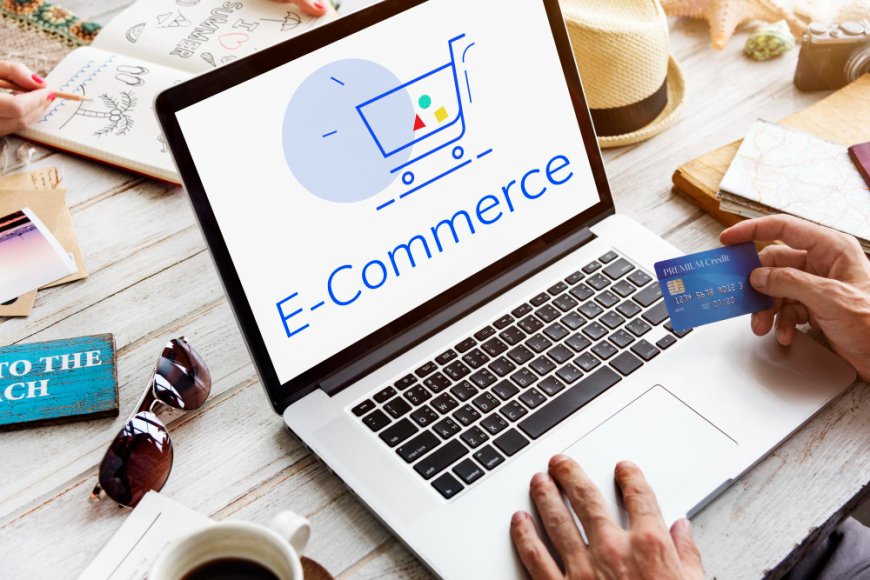AI as a Service in E-commerce: Personalized Shopping Experiences at Scale
Discover how AI as a Service is revolutionizing e-commerce by enabling personalized shopping experiences at scale. Learn how businesses and ecommerce app development companies are leveraging AIaaS for smarter recommendations, dynamic pricing, and customer engagement.

In today's digital-first economy, personalization has become a cornerstone of customer engagement, especially in the e-commerce sector. Consumers expect brands to understand their preferences, anticipate their needs, and deliver seamless shopping experiences. To meet these expectations, many e-commerce businesses are turning to AI as a Service (AIaaS)—a game-changing solution that brings powerful artificial intelligence capabilities to companies without requiring in-house data science expertise.
As competition intensifies and customer retention becomes increasingly critical, leveraging AI as a service can empower e-commerce platforms to deliver hyper-personalized experiences at scale, ultimately boosting conversions, loyalty, and profitability.
What is AI as a Service (AIaaS)?
AI as a Service refers to cloud-based platforms offering ready-to-use AI tools and models that businesses can integrate into their applications. These services typically include machine learning (ML), natural language processing (NLP), computer vision, recommendation engines, and more.
Leading cloud providers like Amazon Web Services (AWS), Google Cloud, IBM Watson, and Microsoft Azure offer AIaaS solutions that help businesses:
-
Analyze customer behavior
-
Predict buying patterns
-
Automate customer support
-
Generate personalized recommendations
The best part? These services require no deep AI or ML expertise, making them accessible to startups and enterprises alike.
How AI as a Service Enhances Personalization in E-commerce
1. Intelligent Product Recommendations
One of the most common uses of AIaaS in e-commerce is the deployment of recommendation engines. AI models analyze vast amounts of customer data—browsing history, purchase behavior, wishlists, and even social interactions—to generate personalized product suggestions.
For example:
-
A customer who frequently browses athletic wear might see curated collections of sports gear.
-
Users who purchase skincare products may receive suggestions for complementary items like serums or masks.
By delivering relevant product recommendations in real-time, AIaaS platforms help businesses increase average order value (AOV) and reduce bounce rates.
2. Dynamic Pricing and Inventory Optimization
AIaaS tools can analyze demand patterns, competitor pricing, and inventory levels to dynamically adjust product prices. This ensures that pricing stays competitive while maximizing profitability.
Moreover, predictive analytics helps forecast inventory requirements, minimizing stockouts and overstocking issues—two common challenges for e-commerce platforms.
3. Hyper-Personalized Marketing Campaigns
Modern AIaaS platforms support segmentation and targeting at an advanced level. By clustering customers based on preferences, demographics, and behavior, e-commerce businesses can craft tailored email campaigns, in-app messages, and push notifications.
Examples include:
-
Sending exclusive discount codes to loyal buyers
-
Promoting newly launched products to frequent browsers
-
Re-engaging dormant users with personalized offers
This degree of personalization drives better engagement and fosters brand loyalty.
4. AI-Powered Search Engines
Many e-commerce platforms now integrate AI-enhanced search engines that go beyond keyword matching. These systems use natural language processing to understand user intent and deliver highly relevant search results.
AIaaS makes it possible for businesses to:
-
Enable voice search
-
Offer visual search (e.g., upload a photo to find a similar product)
-
Handle spelling mistakes and synonyms
This results in a smoother and more intuitive shopping experience.
5. 24/7 Virtual Assistants and Chatbots
AI-powered chatbots, delivered through AIaaS platforms, provide instant customer support, reducing the workload on human agents. These bots can:
-
Guide users through product selections
-
Provide order updates
-
Handle return or refund queries
Thanks to natural language understanding, these assistants can simulate human-like interactions and learn from every customer conversation.
Why E-commerce Companies Should Embrace AIaaS
✅ Cost-Efficiency
Instead of building expensive in-house AI systems, e-commerce companies can leverage AI as a service on a pay-as-you-go model. This reduces capital expenditure and shortens time-to-market.
✅ Scalability
AIaaS platforms are inherently scalable. Whether you're a niche online retailer or a global e-commerce giant, AIaaS adjusts to your customer base without performance bottlenecks.
✅ Continuous Innovation
AIaaS providers regularly update their models to improve accuracy, efficiency, and capabilities. Businesses can tap into the latest AI advancements without investing in constant R&D.
Role of an Ecommerce App Development Company
To fully harness the power of AIaaS, many businesses partner with a professional ecommerce app development company. These experts help integrate AI tools into the shopping experience—from mobile apps and websites to backend systems.
Key services offered by a top-tier ecommerce app development company include:
-
AIaaS integration with cloud platforms (e.g., AWS, Azure)
-
Custom AI model configuration for product recommendation or search
-
Chatbot development for real-time customer service
-
Real-time analytics dashboards using AI-driven insights
By collaborating with a trusted ecommerce app development company, brands can ensure a seamless implementation of AIaaS technologies tailored to their goals.
Real-World Success Stories
-
Amazon: Uses AI-powered recommendation engines contributing to over 35% of total revenue.
-
Sephora: Employs AI chatbots to offer makeup advice and product recommendations.
-
Stitch Fix: Uses AI to analyze user preferences and send personalized clothing selections.
These examples underscore how AI as a service is not just a trend but a powerful tool that delivers tangible business results.
Challenges to Consider
While AIaaS offers numerous benefits, e-commerce businesses should be mindful of:
-
Data privacy and compliance: Ensure GDPR or CCPA regulations are met.
-
Integration complexity: Not all AIaaS tools integrate seamlessly; careful planning is needed.
-
Bias and fairness: AI models should be audited to avoid biased recommendations.
Working with an experienced ecommerce app development company helps navigate these challenges effectively.
Conclusion
As customer expectations rise, delivering personalized shopping experiences is no longer optional—it's essential. AI as a service enables e-commerce businesses to tap into advanced artificial intelligence capabilities without the burden of managing infrastructure or hiring specialized talent.
From intelligent recommendations and dynamic pricing to AI-powered search and support, AIaaS brings unparalleled personalization at scale. By partnering with a reliable ecommerce app development company, businesses can integrate these AI tools efficiently, staying ahead in a competitive digital marketplace.















































































